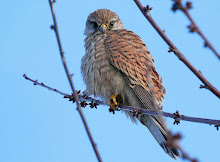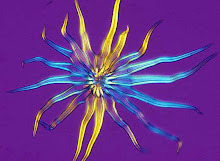Lousewort Pedicularis sylvatica is one of several members of the foxglove family (Scrophulariaceae) that have evolved to become hemiparasites, attaching themselves to the roots of surrounding plants and siphoning off their water and dissolved mineral supply. Lousewort leaves are convoluted and quite small in comparison with the flowers, which sit inside an inflated calyx that later encloses the seed capsule.
I've seen several suggestions concerning the origin of the name 'lousewort' but one plausible explanation is that it sometimes tends to grow in seasonally wet pastures where there's a high incidence of parasites that infest grazing animals. William Withering, the 18th. century physician and botanist, issued stern advice about the dangers of this plant to livestock. Writing in his Botanical Arrangement, published in 1776, he warned "If the healthiest flock of sheep are fed on it, they become scabby and scurfy in a short time; the wool gets loose, and they will be over-run with vermin".
Marsh lousewort P. palustris, sometimes known as red rattle, grows in much wetter, permanently boggy sites. Common lousewort is a ground-hugging plant but marsh lousewort sometimes grows to 50cm. or more in height. William Withering also had a low opinion of this plant, commenting that "This is an unwelcome guest in meadows, being very disagreeable to cattle".
For more hemiparasites, click here


























Boggy places seem to be the favourite haunt of carnivorous plants and vampires! Even mosquitos are happy there.
ReplyDeleteAnother instance of my ignorance! Having never heard of the plant previously, I must say that it does look very interesting, even if it is a trifle unfriendly.
ReplyDelete... and the mosquitoes feed the carnivorous plants that live there too lotusleaf...
ReplyDeleteIt's rather an attractive plant toffeeapple - above ground, at least....
ReplyDelete